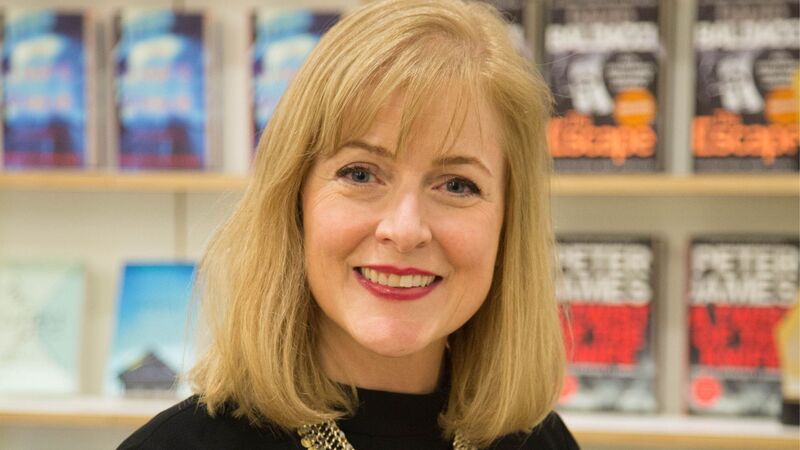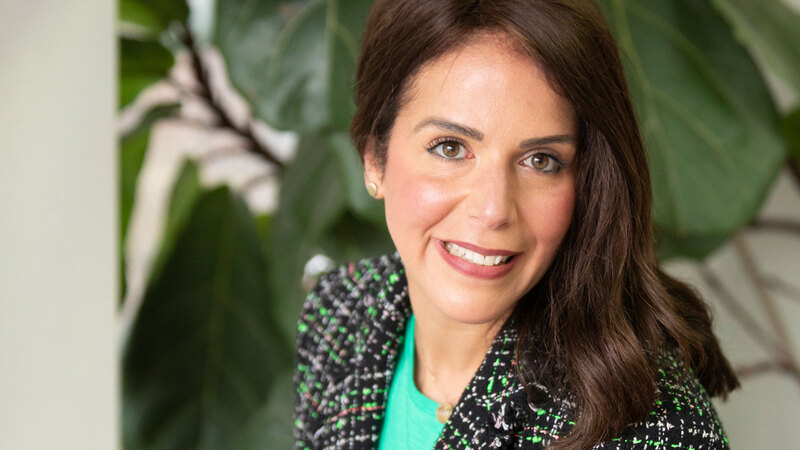You are viewing your 1 free article this month. Login to read more articles.
Rickett reaps rewards of Ebury restructure as non-fiction powers list to new heights
A sensational run of form for Ebury, led by the breakout illustrated hit by Charlie Mackesy, has culminated in a Publisher of the Year shortlisting—and it’s a result of a nimble reorganisation.
First, the full disclosure: before he moved across the aisle to publishing, Ebury managing director Joel Rickett pictured below spent most of his twenties at The Bookseller, going from fresh-faced cub reporter to still suspiciously fresh-faced deputy editor. And at the tail end of his tenure he was my line manager—undoubtedly, he still considers our brief time together his career highlight. But this profile of his Penguin Random House division is not a case of old pals giving him a bit of publicity. Far from it, as a closer look at Ebury is probably overdue: the publisher has had a blistering time of it since Rickett took over two years ago.
Indeed, last year a string of bestsellers—spearheaded, of course, by Charlie Mackesy’s unstoppable The Boy, the Mole, the Fox and the Horse—boosted sales by a third to enable Ebury to notch up a record 12 months of revenue for the 60-year-old company, leading to a 2021 Nibbie shortlisting for Publisher of the Year. Owing to how PRH reports company-wide figures, Rickett says he can’t reveal what that revenue level was. But for a measure of the division’s size, since Rickett took over in January 2019, Ebury has shifted £84.4m through Nielsen BookScan’s TCM (excluding 27 data-deprived weeks during lockdowns); compared against BookScan’s publisher groups, only the Big Four and Bloomsbury have sold more.
The purple patch has continued into 2021. Rickett and I chat on Zoom just after “X-Factor” star turned influencer Stacey Solomon’s Tap to Tidy has finished a two-week run as the UK’s overall number one, with her cleaning and crafting tome shifting more than 100,000 units in its début week. Other big hits of early spring both revolve around health: Hear Me Out, the former Girls Aloud singer Sarah Harding’s poignant memoir of living with terminal cancer; and Many Different Kinds of Love, the children’s author Michael Rosen’s book on his near-fatal bout of Covid-19.
Though he demurs when I ask, there must be some sense of vindication for the success as Rickett brought in sweeping changes when he stepped up from being Ebury’s deputy publisher to m.d. There were personnel moves, luring Drummond Moir over from Hodder and hiring Elizabeth Bond from Ingram to run Ebury Partnerships. But there were departures of key players too: long-time deputy m.d. Jake Lingwood, who left just before Rickett was made m.d.; former publicity boss Sarah Bennie; and fiction publishing director Gillian Greene—the acquirer of by far Ebury’s all-time bestselling novel, Antonio Iturbe’s The Librarian of Auschwitz—who moved to Pan Macmillan.
But the major shift was a massive restructure which moved staff out of specific imprint siloes and put marketing, publicity and editorial into four “tighter, more audience-focused” hubs, called Smart, Entertainment, Self and Lifestyle/BBC. Rickett says: “That first year was about reorganisation and setting the culture and some of the principles and touchstones we wanted. We just kind of got everything in place, I felt, and then we had to go into lockdown mode. But actually we had done that structural work just in time, because I think we’ve found that one of the least effective ways of working in lockdown was those big Zoom meetings with 40 people. With the hubs, we have autonomous units of maybe seven or eight people who can work together to set priorities.”
The fact that there was a new culture helped during the pandemic, too. “We had a lot of work, particularly during the first and second rounds of lockdown, when we talked about essentialism: accept that some things won’t be achievable, prioritise, and focus on what can be achieved and support each other in doing that. The good thing about having a new leadership team, and a new kind of approach, was that the message already was very much that in whatever role you’re in, don’t just go through and tick every box because that’s how it used to be done. Question how things are done all the time.”
Cleaning up
In many ways, Solomon’s Tap to Tidy—bought by editorial director Laura Higginson—is emblematic of how the hubs work, Rickett argues, at least in terms of “audience focus”. He says: “She published a couple of books back in the day, but since then her profile, platform and engagement with her following has just completely transformed. So we saw it almost like a first book. And I think it’s different from the old days, when the trade was so focused on track record and previous TCM [sales]. That’s still part of the mix, but we were looking at how brilliant she is at bringing along this kind of incredibly loyal, engaged following. We weren’t just looking at raw numbers, like how many Instagram followers, but emotional engagement, the kind of trigger points of how invested people are in her.”
Rickett says Ebury does that through a combination of PRH’s audience data, new analytics and Ebury’s own internal insight team. “I think it’s fascinating looking at these qualitative and quantitative measurements. The qualitative emotional side is literally looking at the way that people are reacting to posts, in terms of the language they’re using—for example, we could filter how many times people said ‘love’ in reaction to a Stacey Solomon post. Or how many times they used emojis.”
Outside of the restructure, Rickett freely admits that part of Ebury’s success is the overall resurgence of non-fiction—of that £84.4m in TCM sales since Rickett took over, only 4% comes from fiction—and particularly in the publisher’s core areas such as “smart” non-fiction, lifestyle and personal development. He says: “Non-fiction is obviously thriving again. I think Ebury has always published for needs: people’s passions, hobbies and interests. During lockdown in particular, areas such as cookery, mental health and wellbeing were in huge demand and I don’t think that’s going away.
“We were talking about this even pre-pandemic, but I think there is a switch to ‘pull’ publishing, what people need, rather than ‘push’ publishing, where publishers release something and hope it sticks. It’s not that we can’t actively ‘make’ books—taking brilliant unknown authors to a huge audience. You just have to pick your breakout books very carefully, as the energy it takes to reach its audience and make a hit is enormous.”
Part of the hub model means that the division does make a lot of books in-house; Rickett reckons 80% of the ideas come from “the Ebury creative engine”, either solely from the team or from “creative conversions with authors”. That even extends to some of its biggest brands, such as Yotam Ottolenghi, with whom Ebury devised the upcoming Ottolenghi Test Kitchen series, and Mary Berry. Rickett says: “A lot of people probably said ‘Oh, [Mary Berry’s Simple Comforts] is just the tie-in to the newest BBC series. But what they probably don’t know is we worked with Mary to develop the book, which then became the TV series. At the same time, we want the Ebury teams to bring to us books that we’ve never heard of and authors that we’ve never heard of. Because what we’ve seen is that fragmentation of audiences, and people finding self-defining communities, such as Pinch of Nom or Mrs Hinch.”
In the end, Rickett says, with the Ebury hubs, “we are not exactly claiming we have reinvented publishing, as a lot of this comes out of my experiences when I worked at Penguin General. But I think the hubs give us more bandwidth and more opportunities, maybe like Pep Guardiola’s Man City side this year, operating without a single striker but with goals coming from everywhere. That’s the philosophy: a lot of different opportunities and lots of attacking threat from all over the business.”













